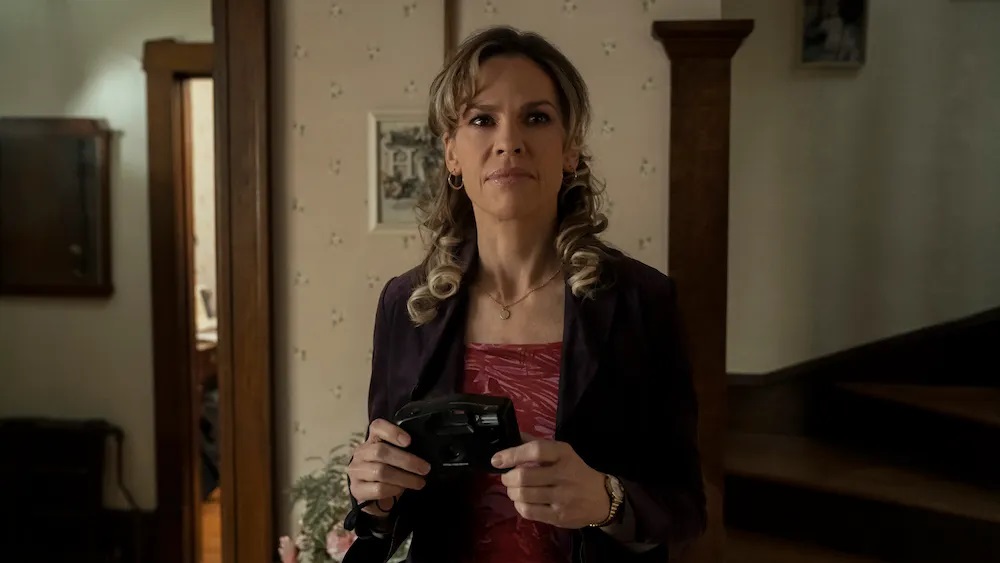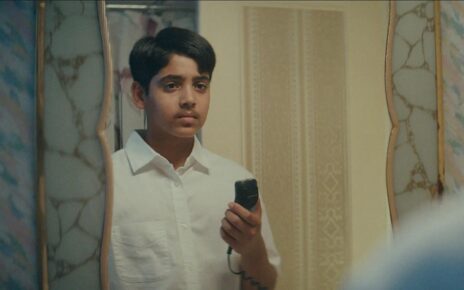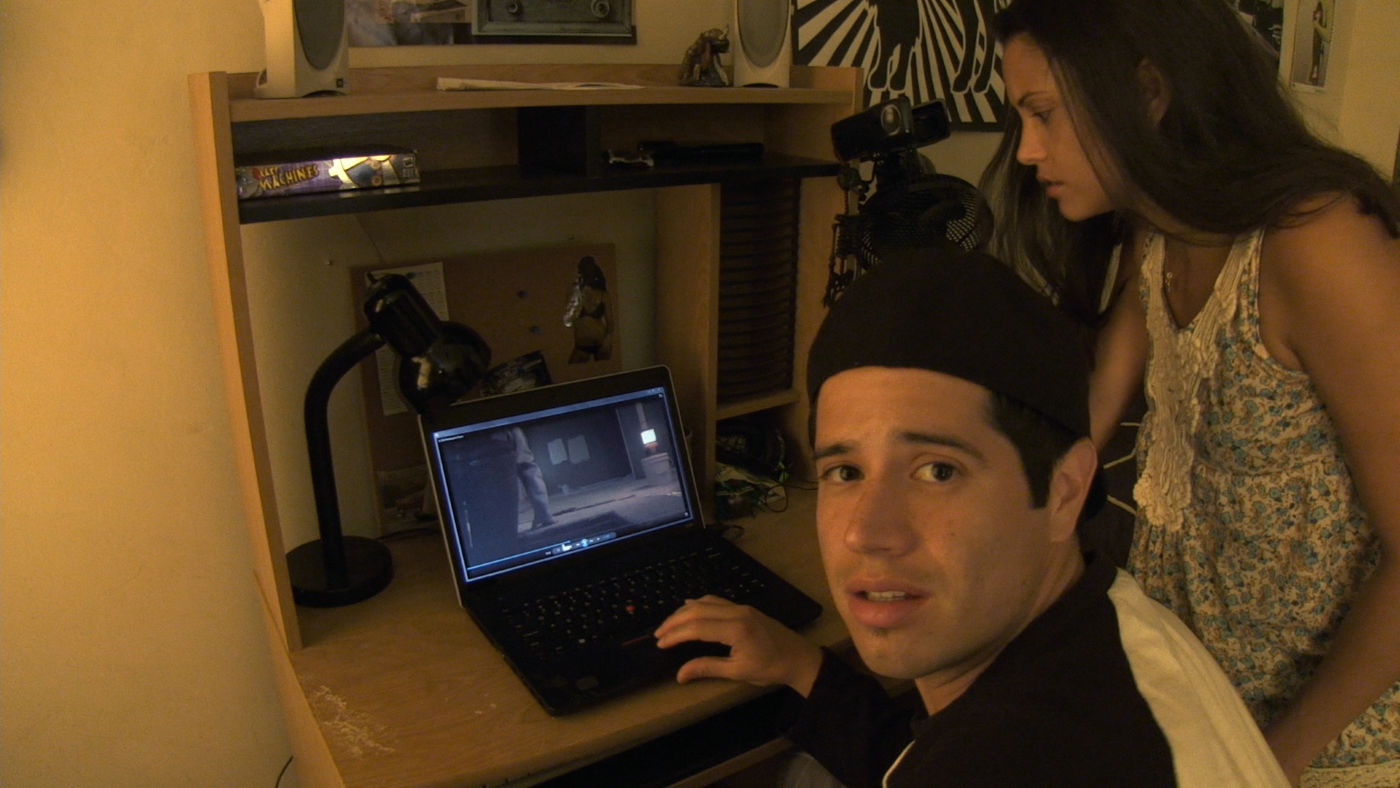Pandering is now an art form. Literally. Want a film that resonates in the heartland? Let’s save a five-year-old dying from liver failure. Let’s have fingers-to-the-bone-toiling single dad be an obstinate brick wall. Let’s have the most ordinary of the Ordinary Angels be a redemption-seeking alcoholic. And let’s wrap up the whole thing in Godspeak without ever hinting at the true villain of the picture: the US healthcare system. Get ready to eat it up, Middle America! Get ready to love uncomplicated and oversimplified heroism without ever questioning your own choices or values!
Ed Schmitt (Alan Ritchson) became a single father when his youngest was born. Mom -essentially- died in childbirth, but not without racking up a hefty medical bill. Dad didn’t have insurance (isn’t this what you RW assholes complain about when your medical bills are high – why doesn’t this case apply? Oh, cuz he’s white.) and still doesn’t have insurance five years later when li’l Michelle (Emily Mitchell) is hospitalized frequently with a fatal liver disease. Michelle needs a transplant, or she will die. But she’s so cute; we don’t want that.
Meanwhile in another film, irresponsible adult Sharon (Hilary Swank) is an alcoholic. Luckily, Ordinary Angels is one of these films in which the alcoholic can just turn it on and turn it off as the script needs her to do so. Again, RW, isn’t this the kind of person you loathe? A part-time hairdresser and failure of a mother due to her unrepentant alcoholism? Doesn’t she lack “moral fortitude” or some shit like that? This kind of person is a prime subject of Christian national bullying when they aren’t picking on trans folks. Why doesn’t her case apply? Oh, cuz she’s white.
Sharon, out for a redemptive arc of biblical proportion, decides the next morning that she’s an angel. This is the way problems got solved in the Bible Belt prior to “Go Fund Me.” God forbid you should legislate universal solutions to healthcare crises. That’s socialism! No, you gotta have an angel. No angel? Well, everybody dies eventually. Bad luck.
Turning off her alcoholism almost instantly -and thank God, cuz Hilary Swank’s drunk overacting was a painful experience- Sharon reads about 5-year-old Michelle and decides to make the Schmitt’s her cause. Oh, and suddenly this is something she’s really good at. Affixing her Kentucky accent and brushing up on Erin Brockovich, Sharon invades the lives of the Mitchells to make everything better. The kid has months to live and they owe $420k, so this might take a bit. As Sharon couldn’t make her own life better, however, she’s determined to raise the Mitchells to where she wants to be.
And all of this failed Hallmark card of a movie is wrapped up in God. Cuz why address the elephant in the room: WTF is wrong with US healthcare that a decent hard-working family man can’t afford his daughter’s medical bills when you can just announce, “It’s all God’s plan” and -for some reason- everyone is satisfied with that. Hey, was it God’s plan for Ed not to get health insurance in running his own business? Must be. Was it God’s plan for Ed’s wife to die and stick him with the $$$$$ bill? Must be. Was it God’s plan for a newborn to have a fatal liver disease that dad cannot afford to investigate? Must be.
This oblivious look at failed healthcare in the United States entered theaters like an Egyptian plague last weekend. Caught somewhere between a Hallmark special and a Christian sermon, Ordinary Angels reminded us of how lovely it is to depend on the kindness of strangers while ignoring all of the bigger questions like: What if this angel didn’t exist? What if this situation isn’t so unique as presented? What about ALL the other kids in need of a liver transplant?
Most importantly, this film literally praises God to high Heaven while ignoring pretty good evidence that God wasn’t exactly on this child’s side. Doubt my words? Look, Christians, let’s run with the “God is good” theory: God took away the child’s mother right after birth. Mom’s death and the child’s illness left dad with no support and almost half a million dollars in medical debt. This left dad reluctant to explore any preliminary signs of wonky physical development for the first five years of the child’s life. When the child takes fatally ill, she’s given four weeks to live. During the exact window that a “miracle” happens -and where did that kidney come from, huh? What’s the story of that child? You don’t want to tell me, do you?- there are unforeseen obstacles, and plenty of them. And the climax happens during the worst storm (or “act of God” if you prefer) Kentucky has seen in decades, thus sealing the child’s fate if not for the pushiest person in three counties.
storm (or “act of God” if you prefer) Kentucky has seen in decades, thus sealing the child’s fate if not for the pushiest person in three counties.
Now, I’m no theologian, but I’d say God tried real hard to kill that child. And, yeah, maybe this attempt was unsuccessful, but God manages to take away a fair number of other children anyway … often to controllable things like gun violence.
I liked one moment from this film – the part where Sharon reveals that she wiped out Ed’s hospital debt and Ed subsequently breaks down in tears. I’d be an asshole not to be moved by the scene, but in retrospect it rings so hollow – why did the hospital suddenly decide the debt was forgivable? And why now? Why not earlier? Thousands upon thousands of Americans are crippled by medical debt. There were over 300,000 bankruptcies declared in 2023 with the root cause being medical debt. What makes this cause so special, huh? And, more importantly, people like me think it shouldn’t be special at all. Healthcare should come with being American. Period.
Ordinary Angels will certainly excite a crowd that accepts these are the way things should be – where healthcare is tied to employment and medical bills go hand-in-hand with medical emergencies. For me, however, I find this sappy look at dysfunctional America hypocritical to the extreme. This obsequious, pandering Hallmark holiday classic will appeal to exactly the same people who likely wouldn’t give it the time of day if it described an immigrant family or if it concluded by saying “Universal Healthcare would save thousands of lives like Michelle’s.” People like me will conclude, “Well isn’t it jolly that this little girl got her kidney under such circumstances? Yay, team.” Of course I’m happy for her. But why did it have to be such an ordeal? And what about every other child in need of decent healthcare?
There once was a kid named Michelle
Whose liver didn’t work so swell
She coughed up blood
And bile-like crud
Her dad went through absolute Hell
Rated PG, 118 Minutes
Director: Jon Gunn
Writer: Kelly Fremon Craig, Meg Tilly
Genre: Thoughts and prayers, healthcare division
Type of being most likely to enjoy this film: the kind of people who believe healthcare should be tied to “Go Fund Me” campaigns
Type of being least likely to enjoy this film: Me, it would seem



